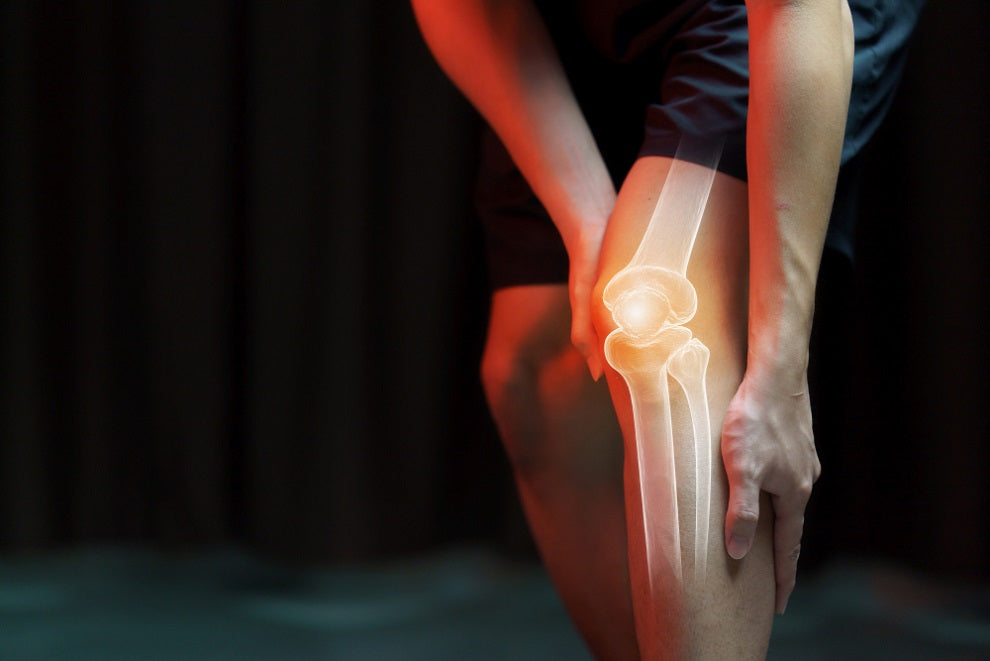
Foods to avoid with Osteoarthritis

Food plays a fundamental role in our health and is one of the most important factors in combating aging. Among the most common pathologies from the age of 40 is osteoarthritis, which is caused by a cartilage degeneration that covers the bones.
Our diet can contribute to the symptoms of osteoarthritis and its development. For this reason, avoiding certain foods can be very helpful. These are some foods to avoid in these cases.
Musculoskeletal pain, Diet and pain, Pain due to rheumatic diseases, Joint pain, Rheumatological pain, Non-pharmacological treatments, For your patients
To reduce the pain of osteoarthritis, it is essential to maintain an adequate weight through exercise and a healthy diet.
If you are overweight, weight loss durably reduces joint pain in osteoarthritis (level of evidence 1A, according to the guidelines of the OARSI, Osteoarthrosis Research Society (International). However, weight loss should be at least 5% to achieve a clinically relevant effect.
From the epidemiological data of the Framingham study on osteoarthritis of the knee, it can be deduced that avoiding or adequately treating obesity has positive effects on the prevention and treatment of osteoarthritis. In addition, the dietary supplement of chondroprotective substances for cartilage is essential. Glucosamine takes part in the synthesis of proteoglycans and hyaluronic acid. Both are essential structural components of the cartilage extracellular matrix, which gives it its elastic properties. Once taken, glucosamines are digested, are highly bioavailable, and accumulate in cartilage tissues.
Another component of proteoglycans is chondroitin sulfate. Meta-analyses indicate a remarkable efficacy in osteoarthritis of the knee and hip. In addition, chondroitin sulfate has shown structural and symptomatic effects (800 mg/day for at least one year).
Another dietary recommendation for patients with osteoarthritis is collagen hydrolyzate. It is a source of amino acids and, therefore, an integral part of cartilaginous proteins. Studies have shown the promising clinical results of collagen hydrolyzate at ten g/day for pain and functional disorders.
Osteoarthritis patients show low blood levels of vitamin E. A diet rich in vitamin E (100-200 mg/day) provides additional antioxidant and anti-inflammatory protection to the cartilage matrix.
Vitamin C is essential for forming collagen and its reticular structure in articular cartilage. Since vitamin C deficiency states have been detected in osteoarthritis, a diet rich in ascorbic acid (> 200 mg/day) should be followed.
The reserve of vitamin D is also essential. This vitamin stimulates the synthesis of proteoglycans, which is why it influences the risk of osteoarthritis.
A 2013 study revealed that a compound called sulforaphane could be the key to preventing or slowing the progression of osteoarthritis. This substance is found in Brussels sprouts, cabbage, or cabbage, especially in broccoli, and slows cartilage destruction in osteoarthritis joints.
Omega-3 fatty acids in fatty fish and fish oil supplements may help relieve pain and improve function.
What to avoid: Saturated fats (from butter, lard, and meats), trans fats (found in some fast foods, processed foods, and junk foods), and sugar, which is associated with chemicals that induce inflammation and can lead to being overweight.
Sugar
Excess sugar is one of the great evils of our diet and is a food responsible for increasing the risk of diseases such as diabetes or obesity. In addition, precisely excess weight and fat accumulation are one of the risks of the appearance and worsening of osteoarthritis, so its intake should be restricted naturally and as a secondary ingredient in many other products such as sauces or drinks.
Ultra-processed food
Ultra-processed food is considered to be those industrially prepared products with ingredients such as isolated proteins, sugars, fats, and oils to which aromas, colorants, emulsifiers, and other cosmetic additives are added to change their appearance. The problem is that they are usually pro-inflammatory products that can worsen the symptoms of osteoarthritis and pain.
Red meat
Red meat can raise uric acid levels in the blood, a waste chemical created after our body breaks down purines, which are also present in this type of food. The problem is that uric acid affects the joints, so it is better to restrict meat consumption when suffering from osteoarthritis.
Trans fat
Trans fats are manufactured when liquid oils are transformed into solids to give the desired appearance and consistency to typical products of the so-called junk food. But, unfortunately, they also promote inflammation and obesity and aggravate osteoarthritis.
Alcohol
As with red meat, alcohol increases uric acid in the body. This increase aggravates joint problems and pain, which is why excessive consumption is not recommended.






